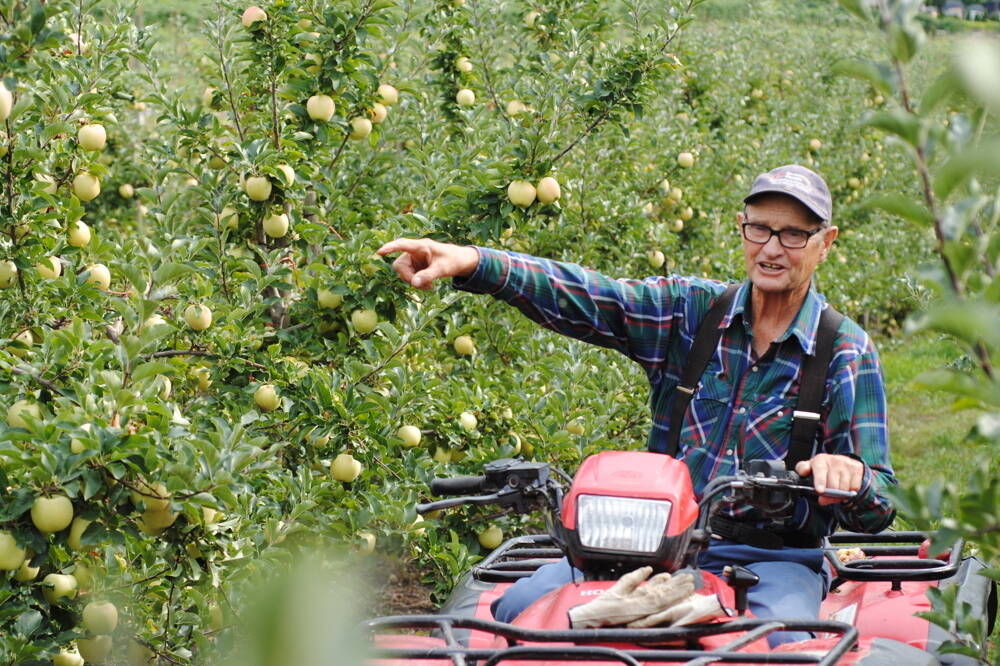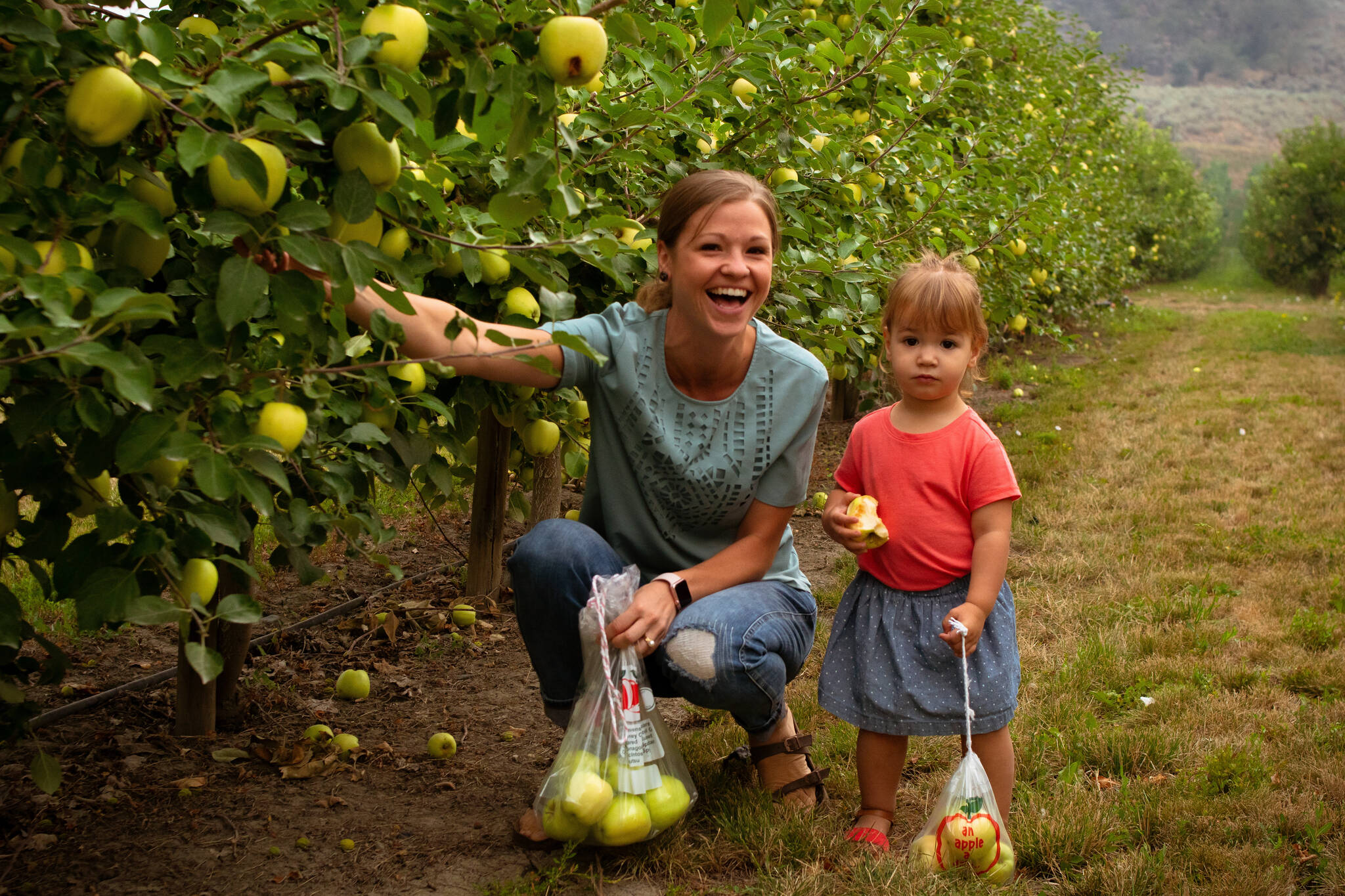The apple doesn’t grow far from the tree, nor do the farmers.
Davison Orchards Country Village in Vernon has been farming for four generations. Even the fifth generation helps how they can, said Tamra Davison, the marketing director who said she’d never marry a farmer.
Things changed quickly once she met and fell in love with Tom Davison. The couple married in 1979, but it wasn’t until 1985 that they convinced Tom’s parents, Bob and Dora, to let them join the farming ventures.
“They were reluctant at first because there wasn’t enough money to support two families, let alone hardly enough for one … But Tom was determined,” explained Tamra.
Bob began farming with his uncle, taking over shortly after his uncle passed when he was 16. Up until Tom and Tamra joined, the farm had been shipping their fruit to a packing house.
The two couples knew they had to do something different, which turned the 34-acre farm into 120, complete with a bakery, ice cream shop and cafe. They now sell directly to consumers.
Despite the farm being a labour of love–from tomatoes and peppers to cantaloupe and watermelons–one apple tree in particular likes to give them grief.
“All horticulture has its challenges, but when we started growing Honeycrisps … we quickly learned that they have their own set of challenges,” said Tom.
Once planted, the farmers pick off the flowers for the first three years of the trees’ lives, which helps them grow strong. Harvesting usually begins in the fourth year. Well-established roots aren’t the only problem, though.
Honeycrisps don’t absorb calcium well, causing some “funny disorders,” explained Tom.
“Just like a human would say, ‘Oh, I need stronger teeth and bones, I’m going to take a calcium pill.’
“We literally spray calcium onto the trees so that they can directly absorb it through their leaves.”
On top of that, Honeycrisps are susceptible to the extreme heat of the Okanagan, unlike other apples that love it, such as the Royal Gala. As such, Honeycrisps are planted along the farm’s slopes at a higher elevation.
Additionally, they put hail netting over the trees, protecting them from hail and providing about 15 per cent shade.
Still, the trees tend to be biennial bearers.
“They have a really good crop one year, and the next year, they have almost nothing.”
So why all the work for such a fussy apple?
“As a farmer, to be able to grow something that your customers love … It’s really fun and rewarding,” said Tom.
Tamra described Honeycrisps as “explosively crisp.” Tom said it’s like biting into a watermelon in terms of the texture and juiciness. They make up about 50 per cent of the farm’s apple sales, the other top contenders being Aurora (Bob’s favourite) and Ambrosia.
Not all apples have been as successful as the Honeycrisp.
Tom was excited after he planted about an acre of Braeburn apples, a popular apple in Europe he described as good-looking, crisp and quite tart.
“Well, Europeans’ taste buds are not as sweet as North Americans … A few years of trying to sell those and struggling with it, I thought, this just isn’t worth it.”
For Davison Orchards, sweeter apples are doable. Since they’re not dealing with transportation and processing times, they can leave the apples on the trees longer. Harvesting occurs at the apples’ peak flavour when the sugar content is high, said Tamra.
To achieve this, the farmers only pick each individual apple when it is ready. For Honeycrisps, this begins late August and lasts through September, Tom explained.
“My dad always said an orchard should have at least two lives because it takes one just to figure out what you’re doing. That’s the fun part about having a multigenerational farm. Some of the work you’re doing is going to be passed on to the next generation.”
To learn more about the farm, visit their website, davisonorchards.ca. Although open daily, you can take a Johnny Popper into the orchard Wednesdays through Sundays, picking a bag of juicy apples straight from the tree. Find them at 3111 Davison Road in Vernon, B.C.



